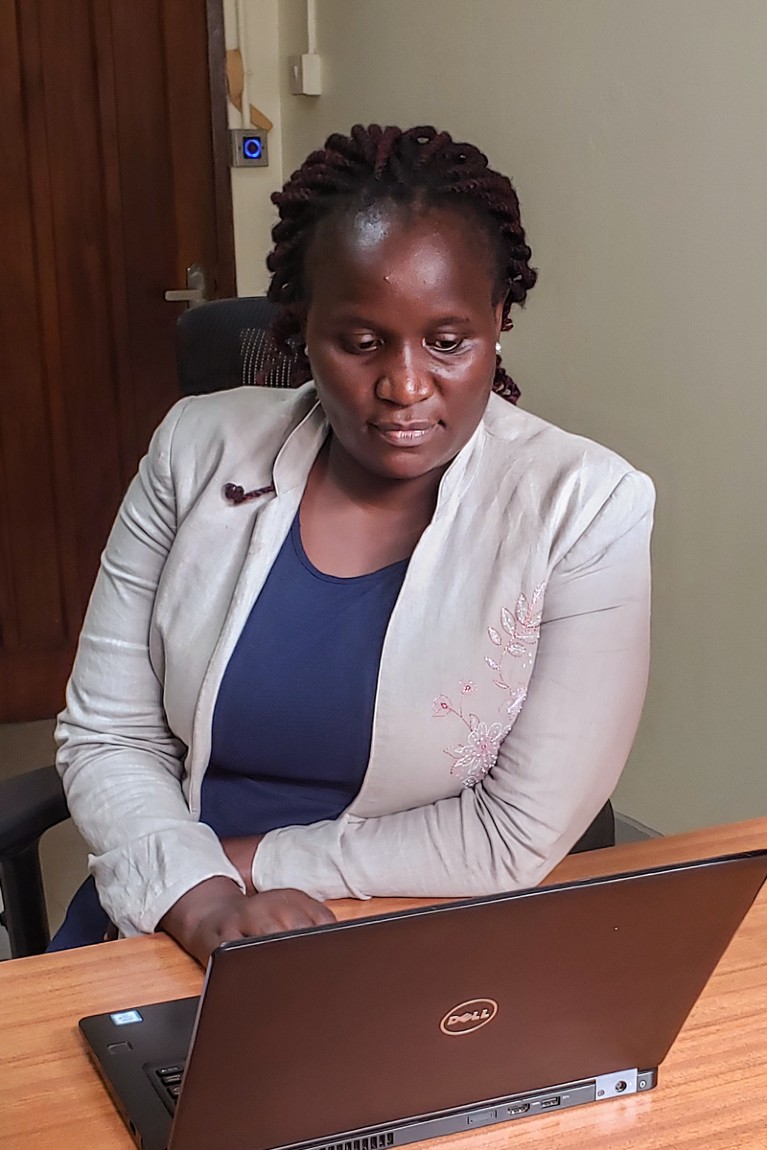
Ugandan scientist Mary Nyantaro is working to improve vaccination schedules for children in the country.Credit: Mary Nyantaro
Mary Nyantaro is a research scientist at the Uganda Virus Research Institute (UVRI) in Entebbe. In 2010, she earned her bachelor’s degree in medicine and surgery from the Mbarara University of Science and Technology in Uganda. She worked at Kiwoko Hospital in Uganda for two years as a general physician in maternity and paediatrics, and then joined UVRI. She received a master’s degree in paediatrics and childcare at Makerere College of Health Sciences in Kampala in 2015, and earned a second one in public health at the University of Manchester, UK, in 2021. She is currently based in Masaka, Uganda, coordinating clinical trials to test a new schedule for vaccinating children against diphtheria, tetanus and pertussis (DTP).
Career resources for African scientists
Why did you pursue two master’s degrees?
They complement each other. My degree in paediatrics and childcare from Makerere gave me more real-world work experience treating kids. My degree programme at Manchester introduced me to research methods, such as qualitative research, biostatistics and epidemiology. That experience has helped me greatly as I prepare my research proposal to apply for PhD programmes.
Tell us more about your work at UVRI.
I am the coordinator of the project exploring the right time to vaccinate children against DTP in Uganda. The current guidelines were set by the World Health Organization in 1984, but many countries have their own vaccination schedule. Since 2021, we have recruited 956 children, and we hope to have our own schedule based on Ugandan data in the next 3–4 years.
Government agencies often have difficulty finding staff to work in rural areas. What is it like working in Masaka, 130 kilometres away from Kampala?
Working here has allowed me to serve the community. I have learnt a lot about managing clinical trials. UVRI has a centre of excellence in the region, and I have a supportive husband who lives and works in Kampala and doesn’t mind that I work in Masaka during the week and commute home on weekends.
There is a contentious national debate about whether science high-school teachers and university professors should be paid three- to fourfold more than their counterparts in the arts and humanities. What do you think?
I can talk only about scientists. Our salaries are low, and they need to be increased. Paying science teachers well will motivate more students to study science and become researchers. Then, we will have a big pool of people who can innovate.
How can research be improved in Uganda, and in Africa generally?
We have enough human resources, but I wish we had more mentorship at early career stages and at the undergraduate level. I would like to see a senior professor teaching students the entire research work cycle, including how to write a scientific paper. I think all undergraduate students should have to take a research-methods course.
Also, the government should have a bigger say in the research agenda. Currently, much of the research is donor-driven, rather than based on needs assessments. We depend too much on protocols borrowed from other countries that do not match up effectively to our health-care system. And the government should put stringent limits on how much of research benefits, such as intellectual property or innovations, accrue to the donor versus benefitting Ugandans.
What is your plan for the future?
I am exploring pursuing a PhD at the London School of Hygiene & Tropical Medicine. I want to study sudden infant death syndrome, in which children less than one year old die in their sleep with no known cause. There is little, if any, research on this in sub-Saharan Africa outside South Africa. I plan to look at risk factors, such as smoking and mothers co-sleeping with their babies. Ultimately, I want to become an independent researcher who wins grants to run my own research group.

 From hydocarbons to sites of history: building research capacity in Ghana
From hydocarbons to sites of history: building research capacity in Ghana
 Boosting banana nutrition for Ugandans
Boosting banana nutrition for Ugandans







